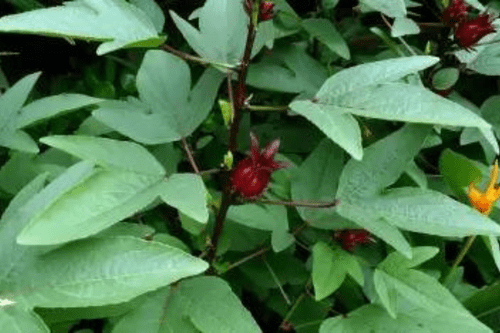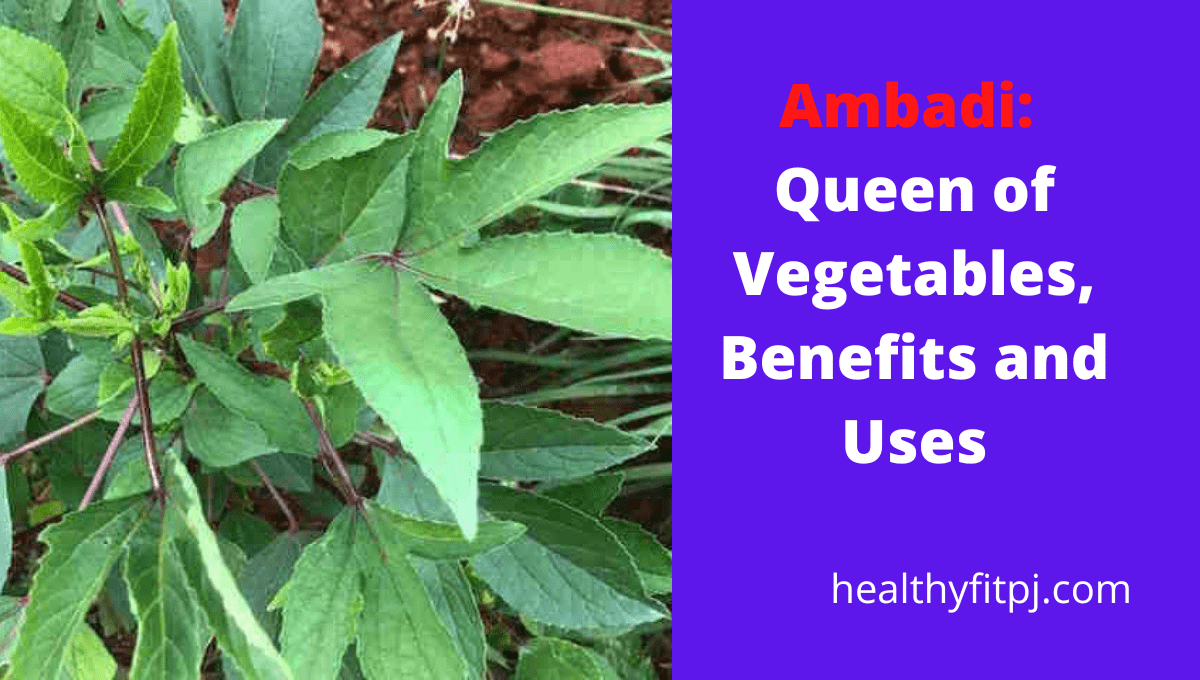Every time we discuss greens, there is always something positive to point out. Greens are undoubtedly useful for our health in many ways, but they are also helpful in treating a variety of illnesses without causing any negative side effects.
Today, we’ll discuss a bitter leafy vegetable with green or red stems that is enjoyed as a delicacy in Andhra Pradesh.
This vegetable, commonly referred to as Ambadi, is also well-known as Gongura in Telugu, Pitwa in Hindi, and Roselle in English.
The unique feature of this plant is that every component—including the stem, leaves, flowers, and seeds—can be used for a single or multiple functions.
Table of Contents
Ambadi – Queen of green vegetables
Local greens, like Ambadi, are climate resilient, grow in all environments, require minimal effort, and may provide our farmers with a relatively simple source of income.
Ambadi, a plant with green leaves and crimson stems, is a member of the hibiscus family. Ambadi is more acidic and taller than the other greens, therefore during the monsoon it is not harmed by the microbes.
It is safe to eat during the monsoon. Because of this, it is regarded as the queen of green vegetables.
It is accessible nationwide and goes under various names. It is referred to as Ambadi in Marathi, Gongura in Telugu, Sorrel Leaves or Roselle in English, Pitwaa in Hindi, khata Palanga in Oriya, and mestapat in Bengali.
There are two types: red-stemmed leaf and green-stemmed leaf. More sour than the green stemmed kind is the red-stemmed variety. The best Gongura producers are Andhra Pradesh and Maharashtra.
Nutritional Profile of Ambadi

100 grammes of Ambadi that is edible (Nutritive Value Of Indian Foods, NIN)
- Calories: 25 KCal
- Fat: 0.2 g
- Protein: 0.6g
- Fiber: 5.1 g
- Calcium: 130 mg
- Iron: 1.7mg
- Phosphorus: 20 mg
- Magnesium: 123 mg
Health Benefits of Ambadi
Ambadi is loaded with several important nutrients, which have multiple positive effects on our health. here are some of them.
- Reduces Blood Pressure: They aid in lowering blood pressure due to their high magnesium and potassium levels. Ambadi leaves provide many health benefits, especially for those with hypertension.
- Relieves Constipation: Ambadi leaves are particularly effective in treating diarrhoea as well as constipation because they contain fibre that promotes easy bowel movement.
- Good for Women Health: Ambadi is an excellent source of iron and folic acid. It doesn’t have the constipation adverse effects that an iron supplement has. It reduces menstrual discomfort and lightens bruising since it is a good source of vitamin C. Use it as tea when you have regular periods.
- Boosts Immune Health: The body produces more white blood cells and has a stronger immune system as a result of the high level of vitamin C, also known as ascorbic acid. This is another factor in the widespread consumption of ambadi and gongura, even during the monsoon season.
- Good for Diabetics: Ambadi is an excellent source of fibre, which helps to regulate blood sugar levels. It is customarily paired with bhakri, a low glycemic index combination dish comprised of makai, jowl, bajra, and ragi.
- Good for Bone Health: Studies show that Ambadi leaves are an excellent strategy to maintain strong bones. The amount of calcium, magnesium, and phosphorus in this mineral-rich plant is crucial for keeping strong, healthy bones. A diet high in these minerals can aid in avoiding osteoporosis and the loss of bone mass.
- Better Sleep Quality: Ambadi tea can be sipped in bed while reading a book and unwinding right before bed; it will aid in sound sleep by calming the nervous system.
- Great for Hair: Regular consumption of ambadi leaves will result in lustrous, smooth hair. They are also recognised for reducing hair loss and slowed hair loss.
Uses of Ambadi Plant
- The seeds, stem, and pod of gongura are used to create medications.
- In addition to being used to make Dal and Curry, the well-known leaves are also used to make pickles, chutney, tea, and spice blends.
- Simply boiling the blossoms and drinking the resulting herbal beverage can be used to treat gastrointestinal problems. In the summer, iced sharbat made from Ambadi flowers is popular. These alluring red blooms are also used to make a variety of sauces, jams, and syrups.
- Oil is also produced from the seeds of Ambadi.
Conclusion
Both vegetarian and non-vegetarian foods benefit greatly from its delectable, nutrient-rich ingredient. You can use Ambadi leaves to make tea, sharbat, or soup to reap their benefits.
Sources:
- https://www.researchgate.net/publication/331217459_EFFECT_OF_ROSELLE_HIBISCUS_SABDARIFFA_ON_CHANGES_IN_HEMOGLOBIN_LEVELS_IN_PREGNANT_WOMEN_WITH_ANEMIA_TAKING_IRON_SUPPLEMENT
- https://nutrition.medhyaherbals.com/gongura-roselle-ambadi/
- https://wellnessmunch.com/8-surprising-health-benefits-and-uses-of-ambadi/
- https://www.dietpro.in/9-amazing-healthy-benefits-of-ambadi/
